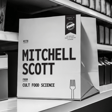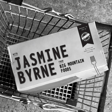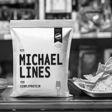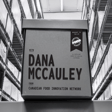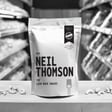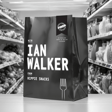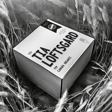
Dr. Sylvain Charlebois | Dalhousie University
Here we go! We’re kicking off Season 2 of Aisle 42 with none other than The Food Professor! I chatted with Dr. Sylvain Charlebois—a leading voice in Canadian agriculture and food policy. He advises all levels of government, he ruffles feathers and he has a real knack for uncovering the broken bits of our food system.
In this episode, we dive into the complexities of food prices, the intersection between sustainability and consumer demand, industry drivers for CPG businesses, the promises and pitfalls of carbon taxes, supply chain challenges, the consumer's role in fuelling innovation, and the fascinating future of food tech. We even learn about his obsession with poutine!
Here's the link to The Food Professor Podcast and the Canada Food Price Report 2025.
Note: If you work in the CPG industry and you give a damn about people and our planet, and the future of the grocery store then I’d love to get my team to help you scale more sustainability… faster. I’m easy to find on LinkedIN or you can email me directly by visiting ethicalfoodgroup.com. I’ll see you in the future.
Here's a summary of this interview:
Food System Focus: Sylvain emphasizes the importance of centering the consumer in the food system to drive innovation and improve the agri-food sector.
Podcast Dynamics: Corwin appreciates the dynamic nature of Sylvain and Michael’s podcast, particularly during on-location recordings, which bring vibrant discussions.
Poutine Nation Book: Sylvain wrote a book on the global phenomenon of poutine, aiming to honor its regional roots and explore its unexpected global popularity. A documentary on poutine is also in the works.
Food Price Report: The 15th Food Price Report highlights inflation and the differences between countries like Ireland and Canada, emphasizing supply chain discipline and competitiveness.
Grocery Code of Conduct: While the adoption of the grocery code by Canada’s "big five" grocers is a positive step, Sylvain expresses skepticism about its immediate impact and views it as a work in progress.
Carbon Tax Debate: Sylvain critiques the lack of analysis on the carbon tax’s impact on food prices and food security. He suggests shifting the focus toward decarbonizing markets and incentivizing industries through systems like cap and trade.
Consumer Demand for Sustainability: There is significant, albeit fragmented, consumer demand for sustainability in food. However, industries and governments need to make a stronger case and implement effective policies to harness this demand.
Food Security in Canada: Sylvain identifies logistics and supply chain resilience as the most significant threats to Canada's food security, advocating for better infrastructure and integration across regions.
Emerging Food Technologies: Cellular agriculture, particularly cultured meat, intrigues Sylvain. He notes global advancements in this area, contrasting them with Canada’s slow progress.
Sustainable Innovation Challenges: Sylvain discusses the challenges industries face, including reconciling environmental goals with profitability, addressing obesity, and responding to the growing impact of pharmaceuticals like Ozempic on consumer behavior.

